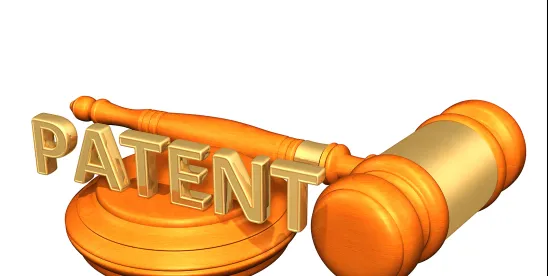The Federal Circuit has long held that “the general rule” of patent infringement damages law is “a patentee may not claim, as its own damages, the lost profits of a related company.” More than 15 years ago, one patent owner argued that an exception to this general rule should be when a subsidiary’s profits “flow inexorably” to the parent patent owner. In that case, the Federal Circuit avoided deciding the legal question, concluding that the patent owner had failed to prove that its wholly owned subsidiary’s profits flowed inexorably to it. The same legal question came before the Federal Circuit again in Roland Corp. v. inMusic Brands, Inc. and the result was, well, the same: no dice.
The circumstances were as follows. Roland sued inMusic for infringement of several patents relating to electronic drums and cymbals. Roland, the sole plaintiff, is a Japanese company that does business directly in the U.S. and through its wholly owned U.S. subsidiary, Roland U.S. (Roland U.S. buys product from Roland and then resells it in the U.S.). Roland’s case against inMusic went to trial and the jury returned a verdict in Roland’s favor, awarding $2.7 million in lost profits to Roland (and an additional $1.9 million in reasonable royalties). The jury rendered a single lost profits verdict, i.e., one that that did not separate out Roland’s lost profits from Roland U.S.’s lost profits. inMusic appealed the judgment entered on the verdict.
On appeal, the Federal Circuit vacated the entire damages award and remanded the case to the district court for a new trial on damages. With respect to lost profits, after reciting the “general rule” of lost profits recovery noted above, the court held that Roland had failed to introduce substantial evidence that Roland U.S.’s profits “inexorably flowed” to Roland. The only evidence introduced was testimony from an executive of both Roland and Roland U.S. that Roland U.S. was a wholly owned subsidiary, and the court held this to be conclusory and insufficient. The court noted the absence of any evidence of (1) who controlled Roland’s U.S.’s distribution of profits, (2) corporate controls to ensure that Rolan U.S.’s profits became those of its corporate parent, Roland, or (3) “historical financial information showing an unwavering flow of profits” from Roland U.S. to its parent. Moreover, because the jury did not render a Roland-only lost profits finding, the Federal Circuit vacated the jury’s lost profits award.
Though designated nonprecedential, Roland is yet another example of the Federal Circuit demanding rigor from patent owners and their damages experts in supporting patent damages claims. See my recent post for other examples. The key takeaways from Roland are as follows. First, the Federal Circuit has yet to embrace the legal principle that patent owners can recover lost profits of a non-party subsidiary. (This is to be contrasted with the court’s acceptance of the notion that a subsidiary with an exclusive license under the corporate parent’s patent is eligible to recover its lost profits.) Second, an “inexorable flow” theory of damages is unlikely to succeed in the future unless a patent owner pursuing this theory of recovery proves that it has structured its financial arrangement with its U.S. subsidiary such that, in fact, the subsidiary’s profits from the sale of the patented product systematically flow to the parent patent owner.




 />i
/>i

